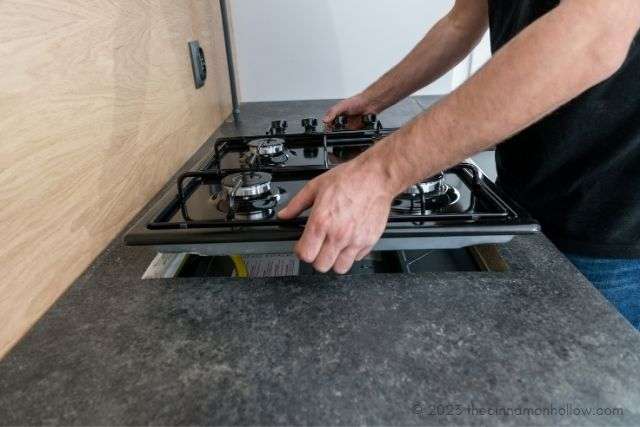Home appliances can be a great comfort, but proper ventilation is essential for safety and longevity. Following guidelines for venting and cleaning them is an excellent way to protect yourself, your family, and your investments.
Venting is a process of removing gas byproducts from the environment. Many hearth products and other appliances require venting for safety, health, and efficiency.

Choosing the Right Vent System
The right vent system is crucial to your appliance’s functionality and longevity. Proper venting removes odors, smoke, heat, and excess moisture from the cooking environment while maintaining airflow and protecting appliances from rust and corrosion.
Saving money, time, and potential problems can be achieved with a professional appliance installation Washington, DC, of a suitably sized and matched venting system. To make sure all appliances are operating safely and per recommended ventilation guidelines, it is imperative to have an expert inspect the venting regularly.
Let’s say you want to install an island stovetop, and the manufacturer recommends a downdraft hood with an internal blower. This appliance requires venting and a recirculating vent system to work well. The most efficient option would be to vent externally, but that’s not always an option. If that’s the case, you can use a PolyPro system, which is easy to install and can be used with existing B-Vent systems.
Installing the Vent System
Proper vent system installation prevents air leaks, condensation, and heat loss. Sealing and insulating the vent pipes are also vital for reducing energy costs.
Many home appliances require proper ventilation to function correctly. Without adequate ventilation, an oven could become a fire hazard, and gases from natural gas heaters could fill the house with toxic fumes. Ventilation is also essential to maintain the efficiency and longevity of home appliances.
Fortunately, most venting requirements can be met with knowledge and DIY effort. However, some systems are complex and require professional vent installation to comply with regulations. A qualified appliance vent installer can also help you select the best venting system for your appliances and home. In addition, a qualified installer can inspect and maintain your venting system to ensure it works properly. It will protect your health, safety, and the lifespan of your home appliances. Observe recommended ventilation guidelines and regularly maintain and clean your appliances to ensure they operate correctly.
Testing the Vent System
Unless your appliances are properly ventilated, their operation can be dangerous. For example, a refrigerator that is not ventilated correctly can contaminate food. At the same time, an oven or gas water heater without adequate ventilation can fill your home with toxic fumes.
They vented combustion appliances like furnaces, wood stoves, gas clothes dryers, and vent (exhaust) their combustion pollutants outdoors through flues or chimneys. But these systems can become dislodged or clogged, and indoor pollutants like carbon monoxide can build up quickly.
Properly installing and maintaining a venting system can prevent these problems. Regular inspections by a qualified professional can ensure proper venting system sizing and temperature resistance. Also, insulating the venting system can help reduce heat transfer and condensation and improve energy efficiency.
Maintaining the Vent System
Ventilation systems should be inspected regularly for signs of deterioration and to ensure they function correctly. It is essential for vents that penetrate walls or roofs, where leakage and energy loss can occur. Insulation is also recommended to reduce energy loss and help maintain the efficiency of the venting system.
Appliances that require ventilation, such as refrigerators, ovens, and gas water heaters, must be vented to the outside to remove odors, smoke, heat, and excess moisture. Without proper ventilation, these contaminants can build up to dangerous levels inside your home.
Proper ventilation is essential for ensuring the safety and health of your family, reducing energy costs, and prolonging the life of your appliances. By following the ventilation guidelines provided by your appliance manufacturer and having a professional inspect your venting system regularly, you can enjoy the comfort of your home while keeping it safe and healthy. Consider installing carbon monoxide detectors near combustion appliances to protect your family from this colorless, odorless gas.







